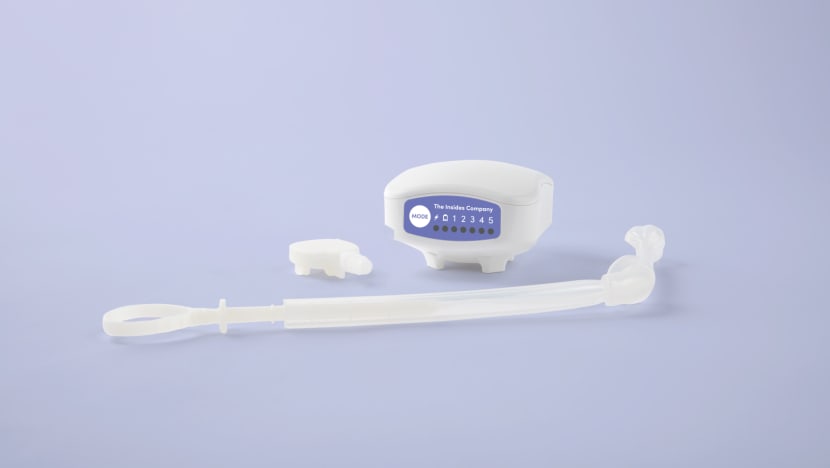New Zealand is renowned for its stunning landscapes, with its rugged coastlines and majestic mountains attracting visitors from around the globe. However, the country has also emerged as a growing player in the technology space, particularly in health technology (health tech).
In 2023, New Zealand’s health tech industry doubled in value, growing from NZ$1.27 billion (S$953.6 million) to NZ$2.6 billion, according to a report by Technology Investment Network and Medtech-iQ.
This growth is supported by a robust ecosystem comprising universities, startups and government agencies that work together to develop innovative solutions aimed at enhancing patient outcomes and improving quality of life.
One notable example is The Insides Company, which was founded to address challenges of severe intestinal failure. This condition affects patients’ ability to digest food and absorb nutrients, often requiring them to rely on parenteral nutrition, a method that delivers artificial supplements directly into the bloodstream, bypassing the digestive system. While lifesaving, this method is costly, requires constant medical supervision and carries potential complications.

To address these issues, The Insides Company developed the world’s first purpose-built chyme reinfusion device. This innovative device reinfuses chyme – a mixture of fluids and nutrients essential for digestion – when it is lost due to intestinal perforations from major colorectal or gastrointestinal surgery, or abdominal trauma. Besides medical relief, the device brings hope for better outcomes and an improved quality of life for patients.
NURTURING NEXT-LEVEL TECHNOLOGIES
New Zealand has a long history of healthcare innovation, dating back to the 1950s when pharmacist Colin Murdoch invented the disposable syringe. Today, the country remains at the forefront of medical advancements, with companies like Fisher & Paykel Healthcare, whose respiratory and sleep apnoea systems help over 14 million people worldwide; and Orion Health, a patient management software provider that provides data-driven solutions to unify healthcare systems and enhance operational efficiency.

“The New Zealand government is committed to leveraging technology to ensure its people live well, stay well and get well. Like Singapore, we have a strong focus on community-led and preventive care,” said Ms Maggie Christie, trade commissioner to Singapore, New Zealand Trade and Enterprise (NZTE).
She added that the country has made significant investments in research and development (R&D). In 2023, R&D expenditure increased by NZ$2 million, bringing the total to NZ$306 million, while health tech firms recorded a total revenue of NZ$2.62 billion.
Mr Rob Davidson, chief technology officer of The Insides Company, attributes the company’s success to New Zealand’s vibrant health tech ecosystem.
“An offshoot of the University of Auckland’s School of Medicine, The Insides Company has benefitted from the university’s robust technology transfer capabilities,” he said, adding that it has also received support from stakeholders such as the MedTech Research Translator and Consortium of Medical Devices.
NZTE played a key role in supporting The Insides Company, connecting it with international partners and providing guidance on market access across different countries, according to Dr John Davidson, chief operating officer at The Insides Company.
Since its incorporation in 2017, over 500 patients in more than 20 countries, including Singapore, have benefited from The Insides Company’s flagship product. By enabling patients to resume eating instead of relying on parenteral nutrition, the chyme reinfusion device reduces the risk of infection and liver complications. This innovation also enhances quality of life by restoring independence and facilitating home-based care.
TACKLING GLOBAL CHALLENGES THROUGH INTERNATIONAL COLLABORATIONS
New Zealand’s emphasis on future-oriented technologies has spurred innovation across a broad spectrum of industries, including healthcare, agriculture and sustainability.
To deliver advanced solutions that benefit both people and the planet, New Zealand’s tech companies have embraced collaborations with like-minded organisations globally, including those in Singapore.
As New Zealand’s fifth-largest trade partner and its closest security and economic partner in Southeast Asia, Singapore serves as an important hub for science and innovation. It provides access to regional markets and opportunities for co-developing inclusive, sustainable and progressive technologies.
Noting that cross-border collaboration is essential for driving innovation and economic growth, Ms Christie highlighted the close and longstanding bilateral relationship between New Zealand and Singapore, which has been strengthened through reciprocal visits over the years.

Dr Davidson noted that the similarities between Singapore and New Zealand – both small, advanced economies – made Singapore a natural choice to launch The Insides Company’s products. “Singapore’s robust regulatory framework for medical devices, excellent healthcare infrastructure and reputation for high-quality healthcare outcomes are other key factors for a successful partnership,” he said.
As New Zealand and Singapore look forward to the 60th anniversary of diplomatic relationships in 2025, Ms Christie expressed optimism that both countries will continue to strengthen cross-border collaboration, driving the development of new technologies that improve health outcomes and save lives.
“We can anticipate expect even greater synergy between the two nations, especially in areas like food security and food technology, which are key pillars of our Enhanced Partnership,” she said. “By gaining a deeper understanding of Singapore’s needs as well as those of the multinational corporations operating here, we can introduce New Zealand companies more effectively and foster meaningful collaborations with Singaporean businesses.”
Learn more about New Zealand companies and their innovations.
































